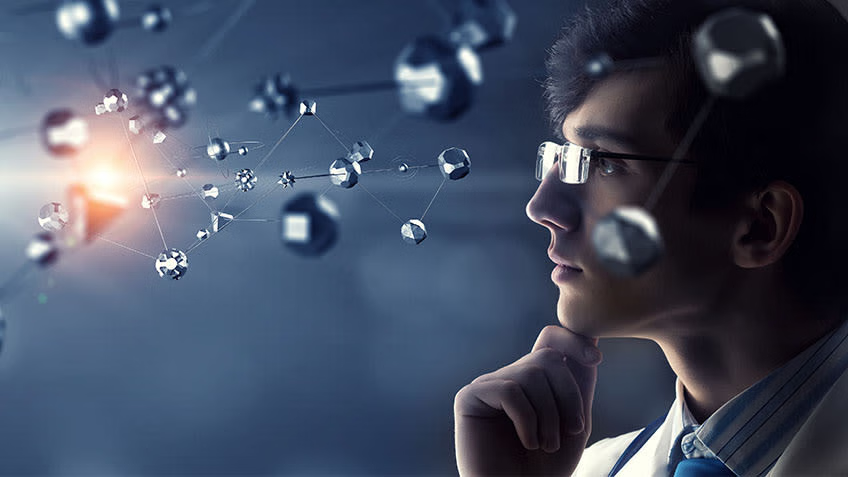In recent years, scientific progress has increasingly faced what many researchers describe as a “productivity decline” — new discoveries requiring more time, more money, and larger teams than ever before. news.mit.edu+1 Simultaneously, the rise of powerful artificial-intelligence (AI) systems is opening a new frontier: one where machines do more than assist—they help drive the research process itself. In this article, we explore how so-called agentic AI is poised to transform scientific discovery, what this means for science and society, and how you can keep an eye on this shift.
1. The Bottleneck in Today’s Research Landscape
Science has always been complex, but several trends are adding pressure:
- The cost, time and scale of experiments continue to grow, meaning fewer “easy wins”. news.mit.edu+1
- Researchers often spend massive amounts of time on literature review, data wrangling, and repetitive tasks rather than creative hypothesis-generation. cas.org
- Fragmentation across disciplines and the sheer growth of scientific output make it harder to integrate insights and spot patterns. arXiv+1
In short, the process of science is ripe for innovation—not just in experiments, but in how we generate them.
2. Enter Agentic AI: What It Means
“Agentic AI” refers to systems that go beyond narrow assistance (e.g., just analysing data) and instead take on agent-like roles in the research process: generating hypotheses, designing experiments, making decisions, iterating, and refining. arXiv+1
Some of the key capabilities include:
- Hypothesis generation: Using pattern recognition across massive datasets to propose novel research questions.
- Experimental design: Suggesting optimal setups, simulations, or material/chemical selections.
- Autonomous execution: Controlling robotics, simulations or workflows without full human oversight.
- Data analysis & interpretation: Drawing insights, spotting anomalies or suggesting follow-up steps.
An example: A recent platform named FutureHouse (in collaboration with MIT) is described as automating “many of the critical steps on the path toward scientific progress,” covering tasks such as information retrieval, synthesis, chemical design and data analysis. news.mit.edu
3. Why This Matters: Implications of Agentic AI in Science
Accelerated discovery & reduced time-to-impact
With AI handling routine and combinatorial tasks, human scientists can focus on higher-level insight and interpretative work. This could reduce barrier times from hypothesis to published result.
Cross-disciplinary synthesis
Agentic AI systems can integrate data from biology, chemistry, materials science, physics, etc., spotting connections humans might miss. Surveys show significant progress in catalyst discovery, for instance, thanks to AI modelling. arXiv
Democratization of research
Labs that adopt agentic AI may achieve more with less infrastructure, meaning more institutions globally (including those in India and developing regions) could participate meaningfully in cutting-edge science.
Ethical, governance and reproducibility challenges
However:
- Who is responsible for the decisions of an AI-driven experiment?
- Are the models transparent and trustworthy?
- How reproducible are AI-generated hypotheses and workflows?
These are active research questions. For example, surveys note major challenges in automation of discovery workflows and reliability of AI-led hypotheses. arXiv+1
4. What This Means for India / Asia & For Readers
For readers based in India (such as yourself, Anshu) and for organisations, the advent of agentic AI implies several practical takeaways:
- Research labs and institutions should monitor AI-driven tools and collaborations—this shift may change funding and publication dynamics globally.
- Education and training: Students and researchers must gain not only domain knowledge (e.g., biology, chemistry) but cross-skills: data science, AI ethics, workflow automation.
- Opportunities for innovation: India has strengths in software/data, so combining domain science with AI could create unique niches (e.g., materials discovery, climate modelling).
- Blog/communication angle: For your science blog, you can highlight how this AI shift gives a meta-story to science—it’s not just what is discovered but how. That narrative appeals to tech-savvy and science-enthused audiences.
5. Key Recent Advances Illustrating the Trend
- The MIT-affiliated FutureHouse lab accelerating scientific research with an AI platform that automates many core steps. news.mit.edu
- Surveys of agentic AI (Wei et al., 2025) mapping its evolution from assistance to true agency in research. arXiv
- Review of AI-empowered catalyst discovery showing how machine learning + language models speed up materials innovation. arXiv
6. Challenges & What’s Next
Data quality & bias – AI relies on past data; historical biases or incomplete datasets will carry forward.
Model interpretability – Scientific claims need traceability, and black-box AI models can hinder acceptance.
Human-AI collaboration – The best model is perhaps not AI alone, but humans + AI. How to design that synergy is an open question.
Ethics & governance – Who owns AI-discovered patents? How to credit human/AI contributions?
Access & equity – Ensuring global research equity: if only elite labs use agentic AI, the divide could widen.
In the coming years, we can expect:
- More standardised platforms/infrastructures enabling agentic AI in labs.
- A shift in funding: grants may favour projects that integrate AI workflows.
- New publication norms: transparency about AI automations, reproducible workflows, and human oversight.
- Growth of “AI for science” education programs — the next generation of scientists may be as much coder/AI-architect as domain expert.
7. Conclusion
Science is evolving—not just in what we discover, but in how we discover it. The rise of agentic AI marks a paradigm shift. For your blog readers, the key message is this: we are witnessing the dawn of science 2.0, where machines don’t just assist—they partner. This does not replace human insight but amplifies it, opening doors to faster breakthroughs, cross-disciplinary leaps and global collaboration.
